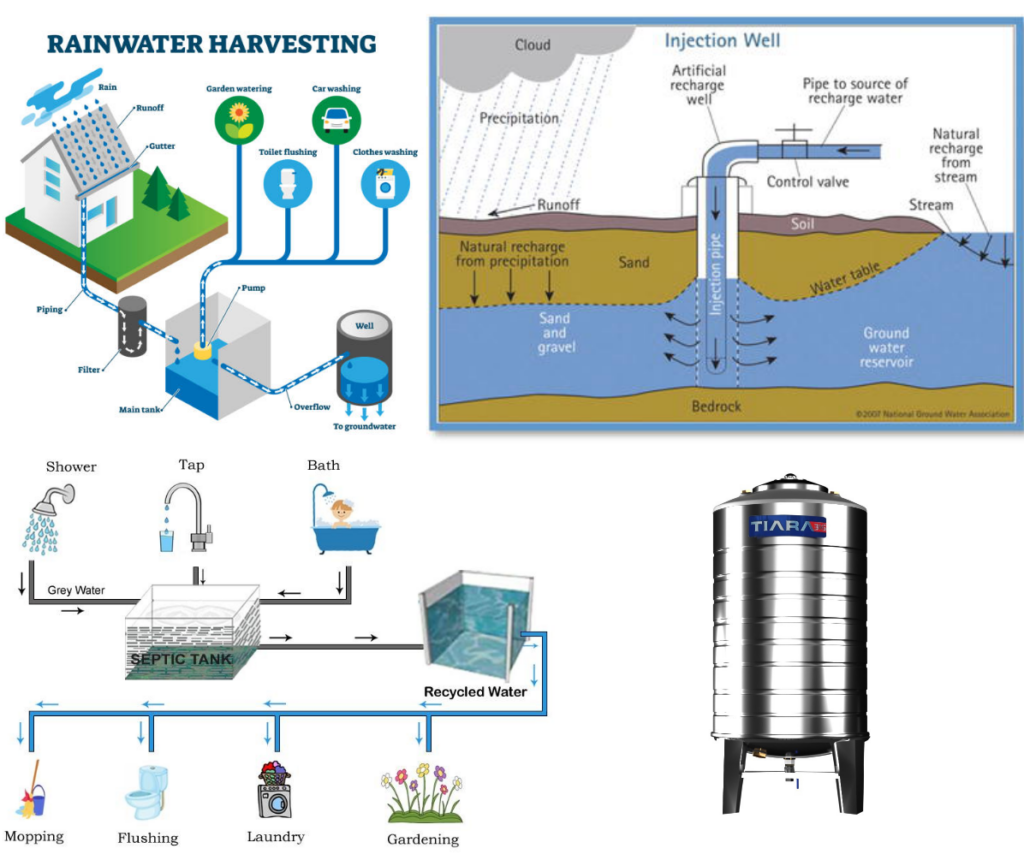
Water scarcity is a pressing issue in many parts of the world, leading to an increased reliance on water tankers for daily consumption. While water tankers serve as a temporary solution, they are not sustainable in the long run. Proper water storage techniques can significantly reduce dependency on water tankers, ensuring a steady and reliable water supply for households, communities, and businesses.
The demand for water often surpasses the available supply, particularly in regions experiencing erratic rainfall or inadequate infrastructure. Without efficient storage systems, people frequently turn to water tankers, which can be expensive and unreliable. By implementing effective water storage strategies, individuals and communities can mitigate these challenges and become more self-sufficient.
Methods of Proper Water Storage
Rainwater Harvesting: One of the most effective ways to store water is through rainwater harvesting. Collecting and storing rainwater from rooftops and open surfaces can provide a supplementary water source for household and agricultural use. Rainwater harvesting systems, such as storage tanks and underground reservoirs, ensure that water is available even during dry seasons.
Groundwater Recharge: Proper storage methods can help replenish groundwater reserves. By directing excess rainwater into recharge wells and infiltration pits, water tables can be maintained, reducing the need for external supply.
Efficient Water Tanks: Installing large storage tanks with appropriate filtration systems can ensure safe and adequate water reserves. These tanks can store municipal or borewell water, reducing reliance on tankers during peak demand periods.
Greywater Recycling: Recycling wastewater from sinks, showers, and laundries for non-potable uses like irrigation and flushing toilets helps conserve fresh water. This method decreases the demand for tanker water and promotes sustainable water management.
Leak Prevention and Proper Maintenance: A significant amount of water is wasted due to leaks and poor maintenance. Regular inspection of pipelines and storage tanks can prevent unnecessary water loss, increasing the effectiveness of storage solutions.
Benefits of Proper Water Storage
Cost Savings: Households and businesses can cut down expenses on purchasing tanker water.
Reliability: A well-maintained storage system ensures continuous water availability without dependence on erratic external supply sources.
Environmental Sustainability: Reducing tanker dependency lowers fuel consumption and emissions associated with water transportation.
Community Empowerment: With proper storage, entire communities can gain control over their water resources and reduce vulnerability to shortages.
Conclusion
Proper water storage is a practical and sustainable solution to water shortages. By implementing rainwater harvesting, groundwater recharge, efficient tanks, greywater recycling, and maintenance practices, individuals and communities can significantly decrease reliance on water tankers. Investing in adequate storage infrastructure not only ensures a stable water supply but also promotes long-term sustainability and self-sufficiency.


